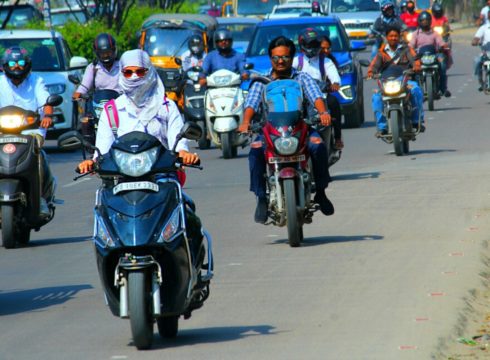SUMMARY
Overall fleet size of bike-rental apps has crossed 15K in India
Globally, bike rental companies more than doubled their fleet size in 2019
India is yet to bring sustainable mobility in bike-sharing space
Inc42 Daily Brief
Stay Ahead With Daily News & Analysis on India’s Tech & Startup Economy
With the growing congestion in Indian metros, the need for sustainable mobility solutions has never been felt more in the past. However, with its fleet of bike-renting, bike-taxi vehicles, the country now seems to be tackling the situation well. Besides being pocket-friendly, these services are also changing the overall landscape of the country’s mobility solutions.
According to a study by Unu, a German manufacturer of electric scooters, the fleet size of bike-rental apps in India is now over 15K vehicles, which is even higher than more developed economies of the US and other Western countries. The surge in the bike rental fleets isn’t limited to India, as in 2019 the global bike rental fleet more than doubled in size from 25,000 to 66,000 vehicles.
The report further estimates that a major part of this leap took place in recent years where the Bengaluru-based bike-rental startups such as Vogo and Bounce made inroads to the bike-rental space in India.
With plenty of funding to fuel their expansion, both startups have increased their fleet to over 7,000 two-wheelers each. However, even after pioneering the model of dockless bike rentals, where a customer can pick and drop the bike at a place of their convenience, these startups are facing difficulties in expanding their services beyond Bengaluru.
While Ola-backed Vogo till date has raised over $120 Mn funding, Bounce is in talks to raise an additional $125 Mn funding from investors such as Accel and B Capital, taking total funding raised by the startup standing at over $225 Mn.
In addition to bike rental and bike-taxi service, companies have even started to explore the bike-sharing space. Since bike-sharing doesn’t involve additional driver’s fees, it is providing a cheaper alternative to bike rental and bike-taxi services.
For instance, Uber which has recently launched Uber BikeShare in Delhi has set its base fare at INR 9 with further INR 2.5 per Km. On the other hand, Uber’s BikeTaxi service costs users INR 20 for the first three Km, INR 30 for 3-5 Km and INR 50 for 5-8 Km.
With these services provided by bike aggregators, India might have found its solution to congestion and last-mile mobility but with the usage of petrol in the bikes, the country still falls behind when it comes to sustainability.
Additionally, the incremental growth in these bike-related services has caused the number of electric scooters in the global fleet to fall from 97% to 70%, the report says.
Update: November 14, 2019 | 8:25 am
Added link to original report
Note: We at Inc42 take our ethics very seriously. More information about it can be found here.


